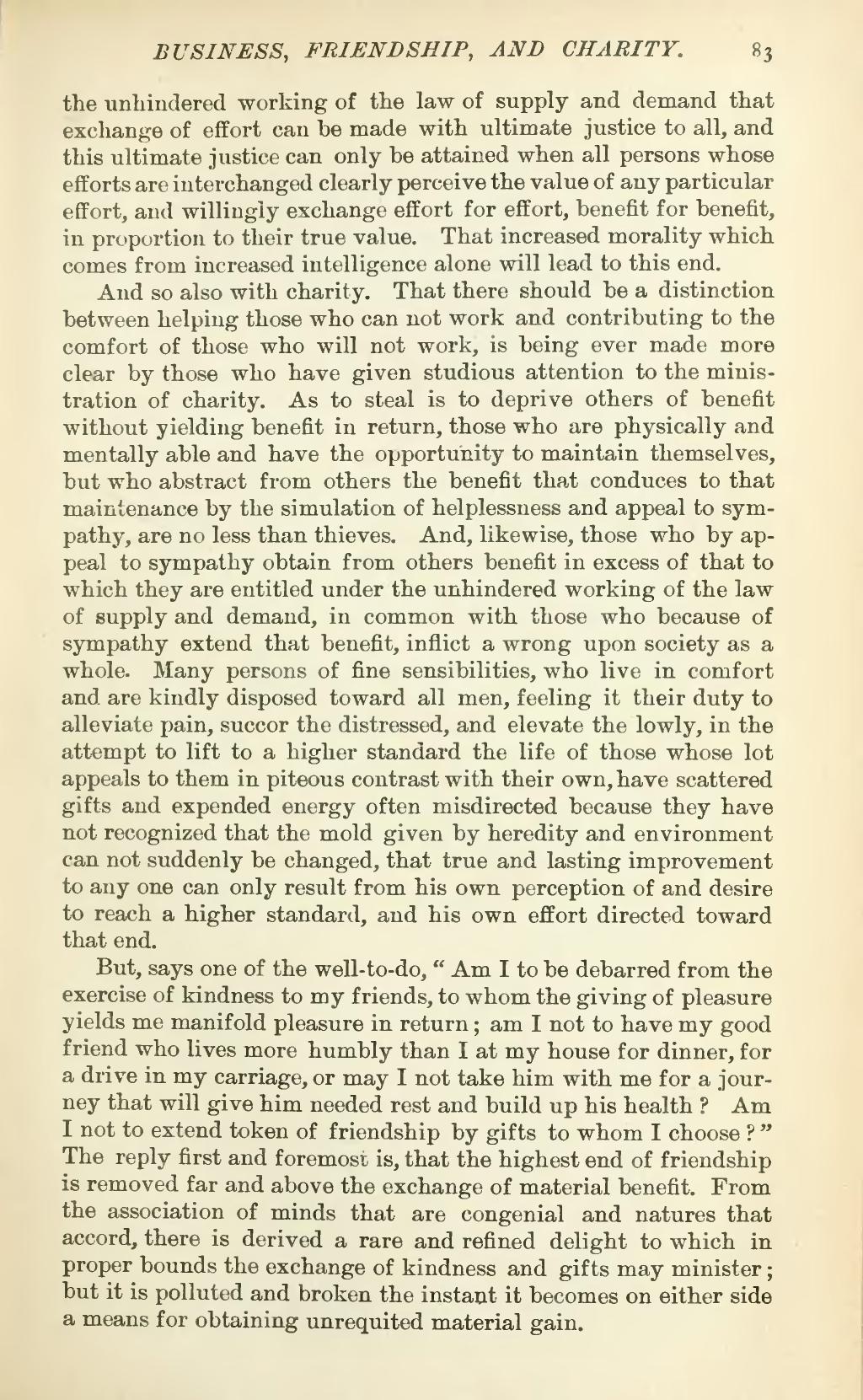the unhindered working of the law of supply and demand that exchange of effort can be made with ultimate justice to all, and this ultimate justice can only be attained when all persons whose efforts are interchanged clearly perceive the value of any particular effort, and willingly exchange effort for effort, benefit for benefit, in proportion to their true value. That increased morality which comes from increased intelligence alone will lead to this end.
And so also with charity. That there should be a distinction between helping those who can not work and contributing to the comfort of those who will not work, is being ever made more clear by those who have given studious attention to the ministration of charity. As to steal is to deprive others of benefit without yielding benefit in return, those who are physically and mentally able and have the opportunity to maintain themselves, but who abstract from others the benefit that conduces to that maintenance by the simulation of helplessness and appeal to sympathy, are no less than thieves. And, likewise, those who by appeal to sympathy obtain from others benefit in excess of that to which they are entitled under the unhindered working of the law of supply and demand, in common with those who because of sympathy extend that benefit, inflict a wrong upon society as a whole. Many persons of fine sensibilities, who live in comfort and are kindly disposed toward all men, feeling it their duty to alleviate pain, succor the distressed, and elevate the lowly, in the attempt to lift to a higher standard the life of those whose lot appeals to them in piteous contrast with their own, have scattered gifts and expended energy often misdirected because they have not recognized that the mold given by heredity and environment can not suddenly be changed, that true and lasting improvement to any one can only result from his own perception of and desire to reach a higher standard, and his own effort directed toward that end.
But, says one of the well-to-do, "Am I to be debarred from the exercise of kindness to my friends, to whom the giving of pleasure yields me manifold pleasure in return; am I not to have my good friend who lives more humbly than I at my house for dinner, for a drive in my carriage, or may I not take him with me for a journey that will give him needed rest and build up his health? Am I not to extend token of friendship by gifts to whom I choose?" The reply first and foremost is, that the highest end of friendship is removed far and above the exchange of material benefit. From the association of minds that are congenial and natures that accord, there is derived a rare and refined delight to which in proper bounds the exchange of kindness and gifts may minister; but it is polluted and broken the instant it becomes on either side a means for obtaining unrequited material gain.

